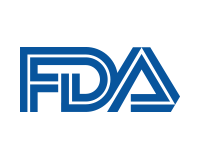United States Department of Health and Human Services

United States Food and Drug Administration: Publications
Date of this Version
2018
Document Type
Article
Citation
J Youth Adolescence (2018) 47:515–533
DOI 10.1007/s10964-017-0730-4
U.S. government works are not subject to copyright.
Abstract
Family processes in early life have been impli- cated in adolescent involvement in teen dating violence, yet the developmental pathways through which this occurs are not well understood. In this study, etiological pathways from parental psychopathology and marital conflict in infancy to involvement in dating violence in late adoles- cence were examined in a sample of children at high-risk due to parental alcohol problems. Families (N = 227) recruited when the child was 12 months of age were assessed at 12-, 24-, 36-months, kindergarten, 6th, 8th, and 12th grades. Slightly more than half of the children were female (51%) and the majority were of European American descent (91%). Parental psychopathology in infancy was indirectly associated with teen dating violence in late adolescence via low maternal warmth and self-regulation in early childhood, externalizing behavior from kindergarten to early adolescence, and sibling problems in middle childhood. Marital conflict was also indirectly associated with teen dating violence via child externalizing behavior. Maternal warmth and sensitivity in early childhood emerged as an important protective factor and was associated with reduced marital conflict and increased child self-regulation in the preschool years as well as increased parental monitoring in middle childhood and early adolescence. Family processes occurring in the preschool years and in middle childhood appear to be critical periods for creating condi- tions that contribute to dating violence risk in late adoles- cence. These findings underscore the need for early intervention and prevention with at-risk families.
Included in
Dietetics and Clinical Nutrition Commons, Health and Medical Administration Commons, Health Services Administration Commons, Pharmaceutical Preparations Commons, Pharmacy Administration, Policy and Regulation Commons


Comments
U.S. government works are not subject to copyright.